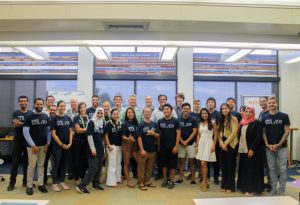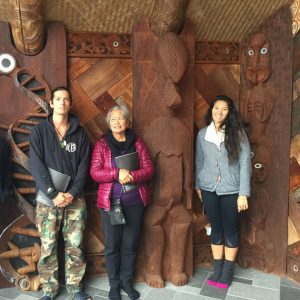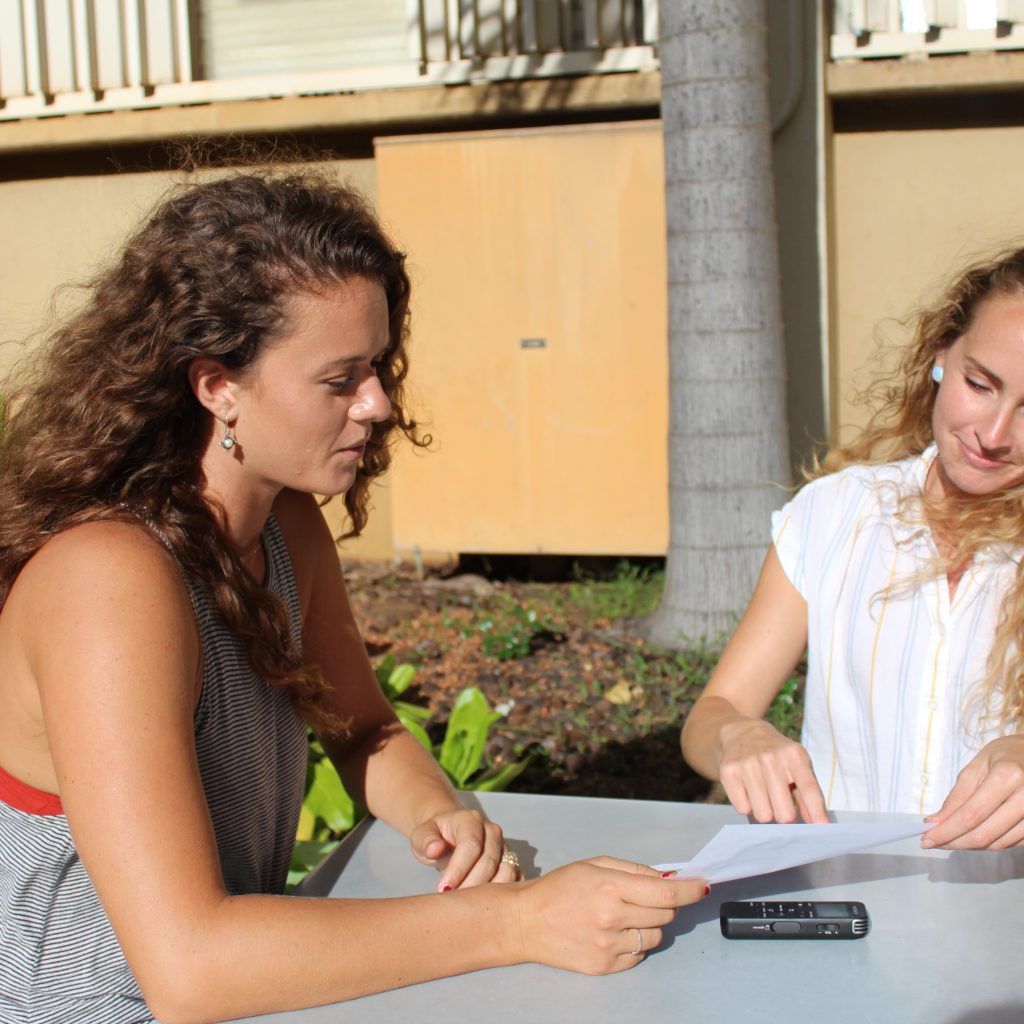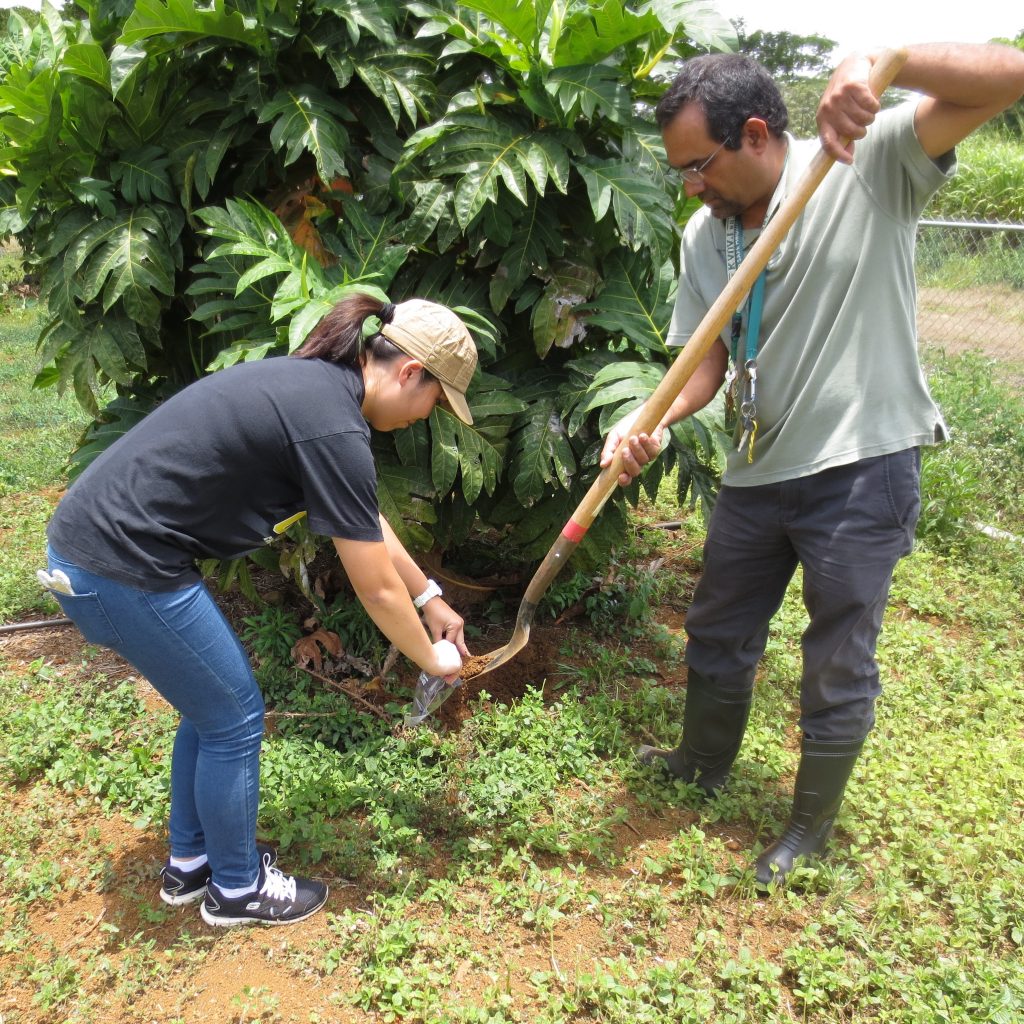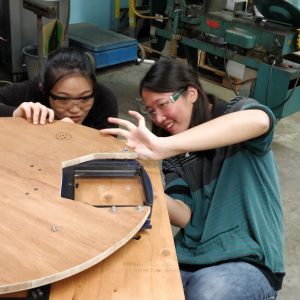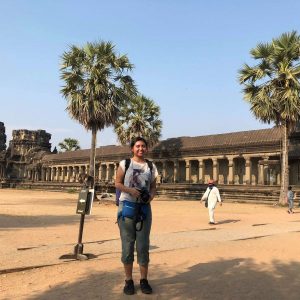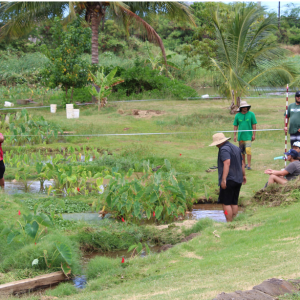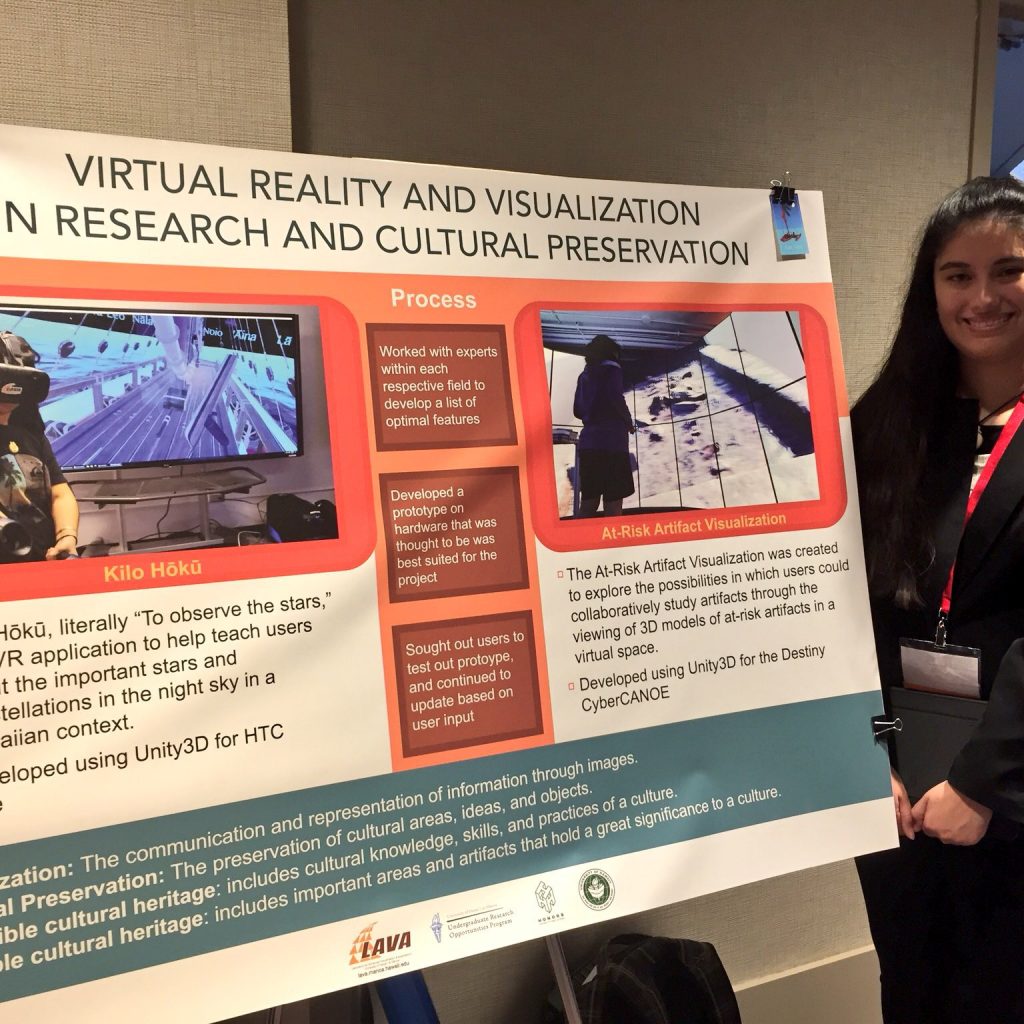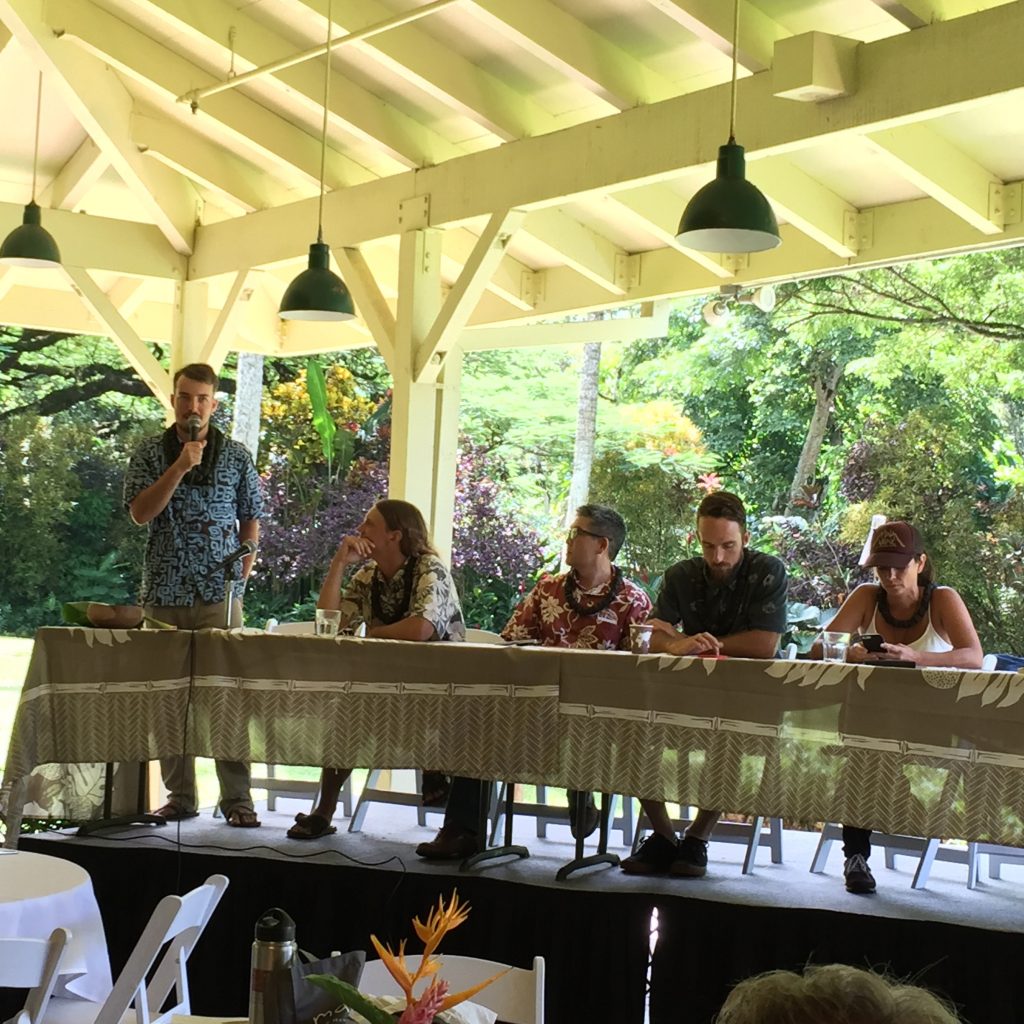Participating in mentored research and creative work gives you an opportunity to ...
Advance Your Academic Knowledge
Conducting mentored research or creative work is an opportunity for you to expand your academic knowledge by applying what you learned in classrooms and from textbooks to make an inquiry-based discovery or a creative contribution. Engaging in a hands-on, real-life process can simultaneously test and advance your academic knowledge.
“During the course of my UROP project, I was able to use relevant course content from previous biology classes to apply towards research. It made me excited to be able to apply what I was learning in my other classes to real-world situations and see the bigger picture.”
— Sylvia Nguyen, Biology“I learned a great deal about contemporary literature, rhetorical sovereignty, cultural perseverance, visual storytelling techniques, and online media publishing through this project.”
— Kalilinoe Detwiler, English“This project allowed me to dive deeper into my field of study and gave me the opportunity to apply classroom topics to actual problems and develop problem-solving abilities.”
— Matthew Nakamura, Mechanical Engineering
Build Life Skills
Conducting mentored research or creative work and the process of applying for UROP funding can enhance your real-life skills like communication, teamwork, organization, project management, problem-solving, and critical thinking that are difficult to acquire solely from textbooks. These transferable skills are valuable and coveted field and occupation.
“Based on the requirements set by UROP, it has also prepared me in organizing my work. At least with writing a proposal and budget, these are skills that I will be able to take into the future of research with grant writing and requesting research funds.”
— Kahealani Acosta, Tropical Plant & Soil Sciences“Working on the UROP project has made me more experienced on a real outside world on teamwork and using our own knowledge in our parts to accomplish the same objectives instead of getting a passing grade for a class course.”
— Clara Lee, Biological Engineering“This project acts as my senior design capstone project, and so the entire point is to realistically simulate a true engineering project from start to finish including funding, constraint adhesion, deliverables, and more. As a manager, it was very pleasant to work with UROP, and I found that it added to the realism of the experience to collaborate with an outside organization to exchange deliverables, instructions, and funds.”
— Haley DeTure, Mechanical Engineering
Work with Experts in Your Field
UROP requires all UROP-funded students to have a mentor to guide and challenge you throughout the process. They will often provide you access to new resources, field experts, and other insights you need to conduct research or creative work in your field. Conducting research or creative work opens up the opportunity to work with and learn from world-renowned faculty members in their field.
“My UROP-funded project was my first experience with research. It has been a pleasure to be in a clinical setting and work directly with the medical staff and patient families”
— Maya Nishida, Chemistry“My mentor managed to show us new ways of looking at course material we learned years ago and demonstrated how that knowledge applies in the design phase of a project.”
— Bryant Higa, Astronomy“Working with a faculty mentor brought me even deeper insight by having someone to support me, guide me, and help me. It’s a great way to learn more about a field of interest and gives you the ability to reflect and evaluate potential future careers.”
— Brittany Odegard, Food Science and Human Nutrition
Receive Financial and Programmatic Support


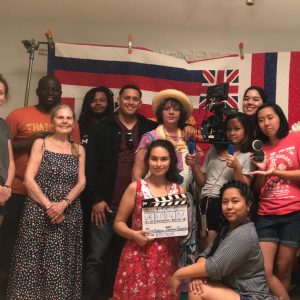
Conducting research or creative work is time consuming, can be expensive, and requires commitment and dedication. UROP funding is intended to make research and creative work accessible and allow you to focus on your research or creative work by enabling you to purchase materials/supplies, support travel, and receive an hourly wage. UROP also offers programmatic support, including a database of research and creative work opportunities, on-campus professional presentation venues, and a summer cohort-based program (SURE), to enable a complete research or creative work experience.
“I am grateful for the opportunity the Undergraduate Research Opportunities Program has given me to do extensive research into specific utopian communities in the United States. The funding enabled me to devote far more time to research than I would have been able to do without it.” — Patricia Tratebas, American Studies
“Without the UROP funding my team received the goals we wished to achieve would have been greatly hindered as the capabilities of our vehicle design would have been largely dictated by our budget and not by our ambition.” — Tawni Chase, Mechanical Engineering
“I have always worked two jobs to put myself through school since I was 16. Receiving UROP funding enabled me to cut back on my work hours so I could do research. If I did not receive UROP funding, I probably would not have been able to complete this project.” — Kayla Brignac, Global Environmental Science
Contribute to Our History and Our Future
Are you passionate about climate change? Social justice? Poetry? Personal finance? Regardless of your topic of interest, research or creative work projects are a rewarding experience that involves creation of new knowledge, addressing real life problems, and presenting new solutions that contribute positively to our future.
“Overall, this project has given me better insight on preservation and has given me a better understanding of we can teach our students about saving endangered species through various forms of art.”
— Jalen Baraoidan, Music“I hope to raise awareness on the values perpetuated by the education system in which the missionaries and other foreigners had a large role of establishing and on how the injustices from this biased system continues in modern Hawaiian society in the form of our current social, economic, and political issues. I hope to help in dismantling these deeply-rooted inequities through my investigation of their origins and relations to classical culture.”
— Camryn Shiroma, Classics
Enhance Your Credentials



Are you looking to find a job or want to pursue a graduate or a professional degree after graduation? Your research or creative work project and successful proposal experiences will make your resume and CV stand apart from the crowd.
“I am proud to say that I have since been offered a summer position in the marketing department of the Miami Dolphins (NFL) and acceptance into Northwestern University’s Integrated Marketing Communication Master’s Program. None of this would have been possible if not for my experience and transformation through this project.” — Kasey Schmidt, English
“There is not a doubt in my mind that the completion of this project will lead me to create great products in my lifetime, and in the short-term, lead to career opportunities reserved for top talent in engineering. This project has led me to become noticed by faculty, media, and employers alike.” — James Thesken, Mechanical Engineering
Network
Conducting research or creative work is a process that involves not just you and your mentor. Instead, it often involves a community of student researchers or creative workers and experts in your field with whom you share advice, knowledge, and experience. Additionally, the opportunity to present your research or creative work at venues such as symposia, conferences, and exhibitions allows you to meet the experts and stakeholders in your field who can enhance your career.
“It was nice to have a hands-on project funded by multiple organizations and led by people who taught and let us work on our own and learn from our problems. This has played a huge part in my major, which is also what I plan on going into when I graduate.”
— Rhianne Suemoto, Mechanical Engineering“Throughout this project process, I was able to work with a team of mechanical engineering, electrical engineering, and astronomy students. By collaborating with this wide variety of students, I have learned more tips and tricks that are helpful in team settings.”
— Jordan Florita, Electrical Engineering“Through this collaboration, I learned the importance of professionalism in the career field. This was a wonderful experience to work with a professional in a field that I was not specialized in, and I am very thankful for the connections that I was able to make through this project.”
— Sarah Ham, Biology
Learn Teamwork



Doing research or creative work often involves working with other students who have similar academic interests, and with a faculty mentor or a group of experts. This environment provides students an opportunity to develop communication, collaboration, and time management skills.
“This opportunity to work with my faculty mentor and the graduate students already working in the lab allowed me to learn how to work with others in a professional and lab environment.” — Alandra DeAndrea, Biological Engineering
“I learned so much from my teammates and mentor. Seeing how separate minds work differently but complimentarily with trust that grew throughout the process was a joy and almost moving in a way.” — Micah Tualaulelei, Mechanical Engineering
Confirm/Validate Your Future Career
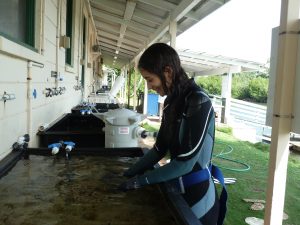
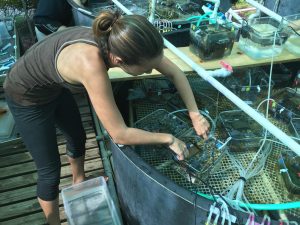
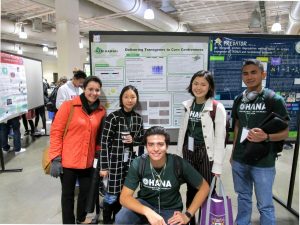
If you want to confirm or validate your future career, doing research or creative work is one way to do so. Being able to place yourself in the setting of your potential career is an opportunity to confirm your interest and career path.
“UROP gave me the opportunity to ‘try on’ my dream job before I committed full time. I now can confidently pursue my passions in archaeology knowing that despite the challenges that come with fieldwork, archaeology is what I’m passionate about and what I’m willingly to commit to long-term.” — Alexandra McDougal, Anthropology
“This was a great representation, if not exact, on what my future career as an engineer will be all about. The variety of lessons I learned from this project are very useful in my field as well.” — Bryson Rulona, Mechanical Engineering
“For a long time, I had a silent doubt on whether research was something I wish to pursue. Doing this project alongside a lab that has been doing research was an eye-opening experience. I was able to figure out how to budget a project, and to figure out a schedule that would work for it. This real experience, coupled with doing the research itself, helped solidify my thoughts on research as something to pursue further in my life.” — Philipp Juern, Biology
Reward Yourself and Have Fun!
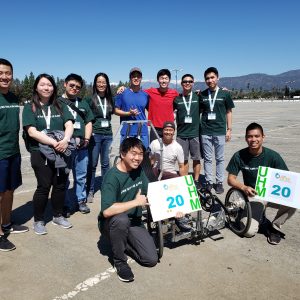

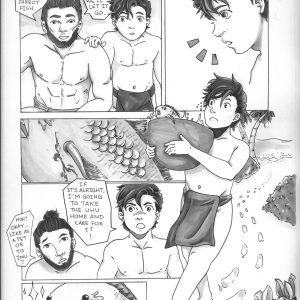
Past UROP-funded students say that the process of expanding their knowledge through research or creative work is rewarding, stimulating, and an enjoyable process. Additionally, students often travel to other regions to meet new people and work in fields ranging from music to sciences to business. Students have written novels, conducted cross-cultural studies, and designed micro-robots. These life-changing experiences not only enriched their sense of purpose and lifelong learning, but were also fun!
“A major part of my project was traveling to Puerto Rico and giving a poster board presentation at a large annual research forum. Not only was I able to engage in conversation about my project but I was also able to see that there are many students from all around the world performing research in areas of their interest as well.” — Jessica Ramirez, Food Science and Human Nutrition
“I was also able to travel to Cambodia as part of my research to make “The Tree of Life: A Khmer Short Film” and while I was there, I learned about the different types of healing that are taking place in the country.” — Tricia Khun, Molecular Cell Biology
Additional Resources
Need more information? Consider the following external resources to learn more about undergraduate research and creative work. Please note that these are external resources for your reference only and while they may be helpful, they don’t necessarily reflect the views or opinions of UROP or UHM.
- What is Undergraduate Research? What Are the Benefits of Undergraduate Research?
Council for Undergraduate Research - Benefits of Undergraduate Research Experiences
American Association for the Advancement of Science - Some modest and practical advice for undergraduate researchers
The Bulletin of the Ecological Society of America - 5 Reasons Why Undergraduates Should Do Research
UC Davis - Why Undergraduate Research?
University of Connecticut - How Undergraduate Research Changed Me
University of Nevada, Las Vegas - Why Undergraduate Research Matters in College
US News



